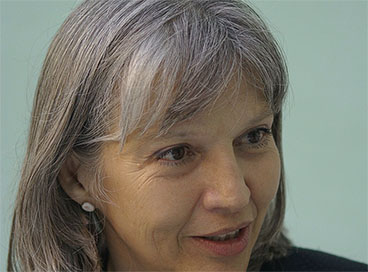This is Not Miami
Greg Walklin
|
Getting your Trinity Audio player ready...
|
“This is Not Miami”
Fernanda Melchor
Translated by Sophie Hughes
New Directions
The best stories seduce. They draw you in and make you fall for them, become infatuated with them, and you lose focus on the rest of the world and only want to know what is going to happen next, what the character will say or do, how the story will end. You stay up late. Neglect your family, your work, your other hobbies. You breathe only at the periods.
Fernanda Melchor is no stranger to such seduction. About halfway through “This Is Not Miami,” her collection of nonfiction now appearing in English, she relates a three-hour story told to her, on an early date, by Jorge, a man she would eventually marry. Even before he had finished the story, Melchor “was already in love with him.” Jorge’s twisting tale, related in “The House on El Estero,” is a voluble mix of demonic possession and eldritch, unexplainable occurrences, with all the elements of a Sam Raimi film (“Drag Me to Hell” comes to mind).
It’s easy, in fact, to be seduced by all of the remarkable stories in “This Is Not Miami,” because Melchor emphasizes their basis in fact: “I do not write,” she notes in the preface, “about tears, armed men or wounded children where they never actually existed.” This makes them more harrowing—but also more compelling; it’s reality, or verisimilitude, that often proves the most seductive. This is partly why autofiction of the kind Karl Ove Knausgård wrote attracted such readership, or the romantically confessional songs of Taylor Swift resonate with so many. “The House on El Estero” is a relato, as Melchor terms them, a Spanish word that encompasses both the idea of a “tale” or an “account.” (Indeed, you go even go as far back as Chaucer to see the compelling power of someone’s tale.)
Melchor, originally from Veracruz, has published two novels, which have already been translated into English by Sophie Hughes. “This Is Not Miami,” also translated by Hughes, includes works that stretch back a decade into Melchor’s writing career, and arranged more or less chronologically; it shows a voice developing—and improving—from early, more straightforward memoirs to complicated, interwoven narratives channeling different voices.
Many pieces stand out simply based on the fascinating subjects chosen. A horrific extrajudicial killing in “The Ballad of the Burned Man,” where the citizens of Tatahuicapa gruesomely execute a murderer found in flagrante delicto, is as horrifying as “El Estero.” Melchor’s narrative, an example of Crónica—a genre of literary journalism endemic to Spanish Latin America—combines a visit to the site with a review of videos and court documents, resulting in a novelistic depiction of what happened. In Tatahuicapa, “the ass end of Veracruz,” the authorities do nothing to stop the mob, who tied the man to a tree and doused him in gasoline. One official explains himself: “‘…the town’s made its choice, so we can’t very well deny you that choice, can we?’”
Meanwhile, “A Good Asset” and “Life’s Not Worth a Thing” highlight the struggles against Los Zetas. In “A Good Asset,” Melchor tells the story of how a man known as “El Fito” became involved with the notorious cartel. “It was never El Fito’s dream to be a narco, even though he in his time he’s been a burglar, mugger, and drug addict.” But the cartel provided steady work; and now he cuts cocaine, “even if he can’t see his family whenever he wants anymore, even if he does bear the cross of knowing that at any moment something terrible could happen to them.” Meanwhile, “Life’s Not Worth a Thing” displays a pitch perfect ear for the voice of the character, an outsider attorney with a blue streak. In the otherwise banal scene it depicts—a cartel apparatchik approaches the attorney for assistance—Melchor captures the true horrors of what the drug trade has wrought in Mexico. How can something so simple as sodas and a business proposal be filled with such palpable fear?
The title essay, involving another remarkable relato, follows Paco, an overnight dockworker in Veracruz who, hearing from management that will likely be a quiet night at the port, expects to be released early. But all imports mysteriously shut down when the police arrive. After some time, the officers return with a group of Dominican refugees, and they all eventually vanish into the back of an immigration van. Paco continues his shift only to discover nine more men, who hid from the authorities and remain latched to some other boats. One of them asks Paco if they’re in Miami. “‘Miami?’” Paco says, laughing at him. “‘You’re kidding. You’re in Veracruz!’” Although he gives the man some of his own food, Paco’s initial flippancy underscores the tragedy. The Dominicans are “skeletal men and women who were weeping and rubbing their bare arms,” obviously desperate, starved, and devastated they’re in Mexico.
Other notable pieces here include “Queen, Slave, Woman,” a Truman Capote-esque Crónica into a former beauty queen who ended up murdering her two children; and “Lights in the Sky,” a memoir with a child’s-eye view of Veracruz and possible UFO sightings.
While both of her novels have demonstrated that Melchor is an accomplished fiction writer, “This Is Not Miami” would have been outstanding if it was just straightforward reportage. If these stories are seductive, they also show a deeper understanding of seduction’s downside—the power of narratives to undercut, distort, or magnify reality itself. The lyrics of a ballad are interspersed throughout “Burned Man,” which gives us an entirely different perspective on the killing. The sensational newspaper and media coverage of Evangelina Tejera Bosada, the subject of “Queen, Slave, Woman,” led the townspeople to scare their kids straight by warning them that “Evangelina will come and punish you” if they misbehaved. In both “A Good Asset” and “Life’s Not Worth a Thing” Melchor so expertly channels the voices of her narrator/subjects that the reader is absolutely taken over by their dilemmas, and it feels less like you are being seduced than that you’re rubbernecking at car accidents.
Writing such true accounts often have unintended consequences, however. As Melchor notes: “We want to give a faithful account of the reality, of a small fragment of reality, and we end up saying more about our own finitude, fears and desires.” Our own perspective creeps into even the best intentions; objectivity always remains a mostly unreachable ideal, the journalistic equivalent of a Catholic avoiding purgatory. And it’s the same thing happening in “The House on El Estero,” about supernatural occurrences that, frankly, could not have happened, was also about how Melchor convinced herself her relationships with Jorge would last the rest of their lives. What makes “The House on El Estero” stick—long after you’ve found out what happened—is how Melchor wraps her marriage around the horror story, and how she drives at the power of narrative itself to shape reality. Ultimately, she and Jorge divorced. “It took me several years to work out that, in reality,” she writes, “I had fallen in love with his stories.”
“This Is Not Miami,” only around 150 pages, is free of fluff, or political cliché, or heavyhandedness. “[L]anguage is treacherous,” the author warns early on, but she still manages to wrap each story and subject around what feels like an ineffable, or undesirable, reality. The language here is fresh, exact, poetic without being florid; Hughes does an admirable job with the translation, rendering Melchor into crisp, journalistic English. One peccadillo, however: in the title essay, a starving Dominican “greedily” eats some food handed to him by Paco; this is cliché, which, when one thinks about it, makes little sense. How could a starving person be greedy about food?
Zadie Smith, writing about the film “Capote,” which portrayed Truman Capote’s process of writing the nonfiction novel “In Cold Blood,“ pithily described Capote’s approach to novelistic journalism: “He knocks on your door with a smile, a pen and shard of ice in his heart.” Despite ostensibly appropriate journalistic distance throughout—marriage to Jorge aside—this book gives you the sense that Melchor knocked on a lot of doors but left the ice at home. The houses of Veracruz open up to her, and whether she’s writing about a victim of the cartels or the cartel members themselves, for example, there remains no sense of aloofness or judgment. In whatever form, the book employs the interrogating power of literature to spectacular effect.
In the last piece, “Veracruz with a Zee for Zeta,” a series of short second-person vignettes telling stories around Los Zetas and Veracruz, Melchor writes directly, putting “you” in the place of various struggling Mexicans, channeling their stories. It’s poignant and arresting, and a retort to the first piece, “Lights in the Sky,” where absorptive comics and fantastic tales from weekly tabloids prime a young Melchor to believe that UFOs have really been sighted along the beach. Before long, though, an aside spoils the fun: “All this fuss,” her mother eventually says, “over a narco plane.” Sometimes a tale is just too good to be true.
 Greg Walklin is an attorney and writer living in Lincoln, Nebraska. His book reviews have appeared in The Millions, Necessary Fiction, The Colorado Review, and the Lincoln Journal-Star, among other publications. He has also published several pieces of short fiction. His Twitter: @gwalklin
Greg Walklin is an attorney and writer living in Lincoln, Nebraska. His book reviews have appeared in The Millions, Necessary Fiction, The Colorado Review, and the Lincoln Journal-Star, among other publications. He has also published several pieces of short fiction. His Twitter: @gwalklin
©Literal Publishing. Queda prohibida la reproducción total o parcial de esta publicación. Toda forma de utilización no autorizada será perseguida con lo establecido en la ley federal del derecho de autor.
Las opiniones expresadas por nuestros colaboradores y columnistas son responsabilidad de sus autores y no reflejan necesariamente los puntos de vista de esta revista ni de sus editores, aunque sí refrendamos y respaldamos su derecho a expresarlas en toda su pluralidad. / Our contributors and columnists are solely responsible for the opinions expressed here, which do not necessarily reflect the point of view of this magazine or its editors. However, we do reaffirm and support their right to voice said opinions with full plurality.
Posted: August 28, 2023 at 7:49 pm










